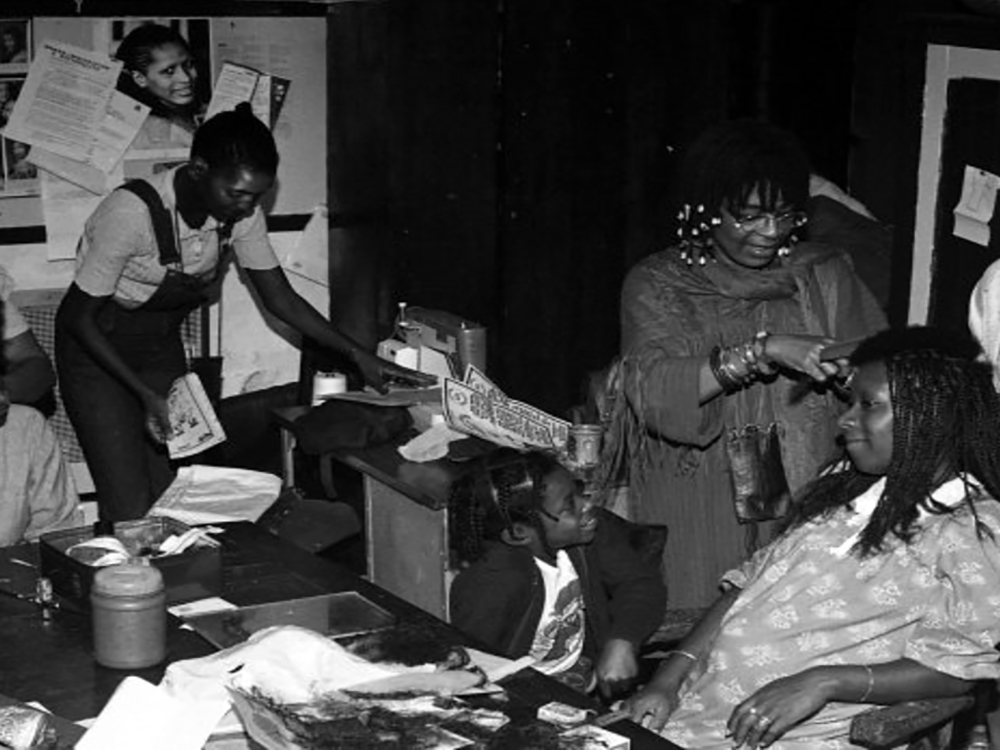Access now
Image: Courtesy of Manchester Archive Plus This half-day symposium featured the voices of activists, academics and artists reflecting on Black feminist/womanist traditions, the legacies of creative and political practices since the 1970s to contextualize and resist our 21st century realities.
Featuring presentations by Rita Gayle, Dr Joy White, June Reid, Dr Lisa Amanda Palmer, and Diana Watt & Adele D. Jones.
These presentations ran counter to dominant narratives in Black British history to provide us with the language and historical understanding of our culture, self-consciousness and identity.
Black women in Britain lift as they climb and have continued to do so for decades with minimal recognition or praise. Their fierce commitment to the collective care of their communities is sometimes to their own detriment. As our carers, educators, writers, activists, labourers and friends – who are susceptible to incomparable racial and sexual abuse – Black women must be vigorously protected and honoured for their past and continued efforts, as sisters in the struggle.
Programmed by Rianna Jade Parker, co-curator of
War Inna Babylon: The Community’s Struggle for Truths and Rights Bios Rita Gayle is a PhD Researcher at the University of Birmingham investigating how millennial Black British feminists are working collectively as a strategy to counteract their exclusion from the creative and cultural industries. Rita is funded by an AHRC DTP Midland 3 Cities Research Studentship Award. She has previously worked as a news gatherer for BBC News and as an independent filmmaker. Creative futures of Black (British) feminism in austerity and Brexit times by Rita Gayle, 2020Terraformed: Young Black Lives in the Inner City by Joy White, Repeater Books, 2020Spotify Playlist: Terraformed Questions of presence by Gail Lewis, in Feminist Review , 2017Plantation futures by Katherine McKittrick, in Small Axe , 2013Flat Out! Dancing the city at a time of austerity by Patricia Noxolo, in Environment and Planning D: Society and Space , 2018Small Axe: what Steve McQueen got right and wrong about Lovers Rock by Lisa Amanda Palmer, in Salon Men Cry too – Masculinity and the feminization of lovers’ rock ‘LADIES A YOUR TIME NOW!’ Erotic politics, lovers' rock and resistance in the UK by Lisa Amanda Palmer, in African and Black Diaspora: An International Journal Catching Hell and Doing Well: Black women in the UK by Diana Watt & Adele D. Jones 










no. 236848.